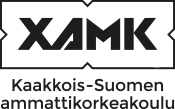Epidemiological knowledge in Health Promotion (5 cr)
Code: HP00CU32-3001
General information
Enrollment
20.08.2018 - 07.09.2018
Timing
01.08.2018 - 31.12.2018
Number of ECTS credits allocated
5 op
Virtual portion
3 op
Mode of delivery
40 % Contact teaching, 60 % Distance learning
Campus
Kotka Campus
Teaching languages
- English
Seats
20 - 30
Degree programmes
- Master's Degree Programme in Health Promotion
Groups
-
HPKT18SY
Objective
You can recognize and describe the concepts of epidemiology.
You can look for knowledge in epidemiology, select and interpret parameters describing health behavior, and based on them, draw conclusions in the state of health and wellbeing of the population.
You can interpret the parameters related to national diseases and health and wellbeing problems and use them for the prioritization of promotive and preventive interventions.
You can estimate the health needs of the population, communities, and individuals based on epidemiology.
Content
How to interpret and utilize statistic of mortality, the prevalence of illnesses, accidents, risk factors and risk behavior in the population?
How to recognize and estimate risk factors and risk groups related to health and wellbeing problems and national diseases?
How to evaluate information on environment and living conditions related to health?
How to compare and interpret national and international databases and health differences between Finland and Europe?
Location and time
Written examination, assignments in written, an oral presentation.
Materials
Books, publications, statistic. Series of lectures.
Teaching methods
Scheduled track:
The student participates in the class room teaching, completes the given assignments, has an oral presentation and participates in the web based learning. Written examination.
Independent track:
This is suitable when the student works on the regional level in the research and planning of health promotion. The theory will be applying to the practice with several tasks.
Blended track:
Written examination, assignments in written, an oral presentation.
Completion alternatives
This is suitable when the student works on the regional level in the research and planning of health promotion. The theory will be applying to the practice with several tasks.
Student workload
Lessons, an independent reading 80 hours, information search and other assignments 55 hours.
Evaluation scale
1-5
Assessment methods and criteria
Evaluation includes the written assignments, the oral presentation and participation in the discussion in the class room.
The student can:
a. evaluate and make critical use of epidemiological data in the field of promotive and preventive work
b. be responsible for operations and develop them independently and systematically in health promotion
c. use new strategic approaches related to epidemiological data, health behavior and health promotion projects
g. communicate and interact in demanding international contexts related to epidemiology, national diseases and health problems in the population
Qualifications
Basic knowledge of national diseases and health problems.
